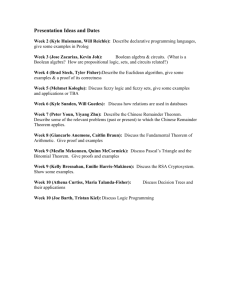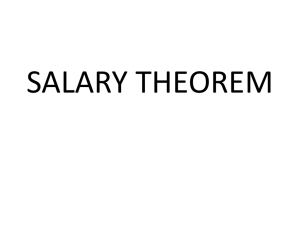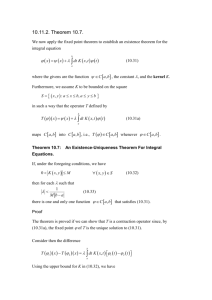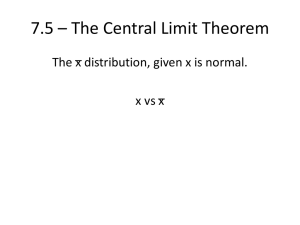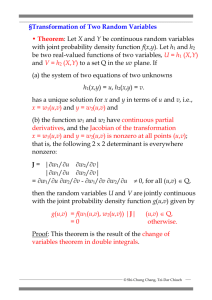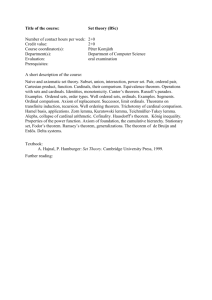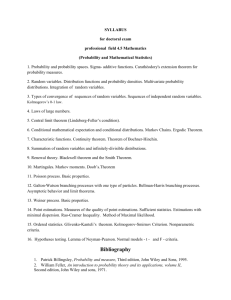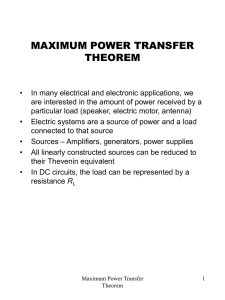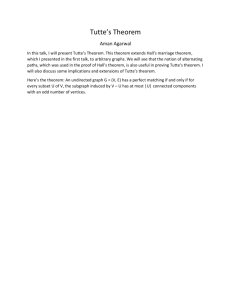Lecture 19
advertisement
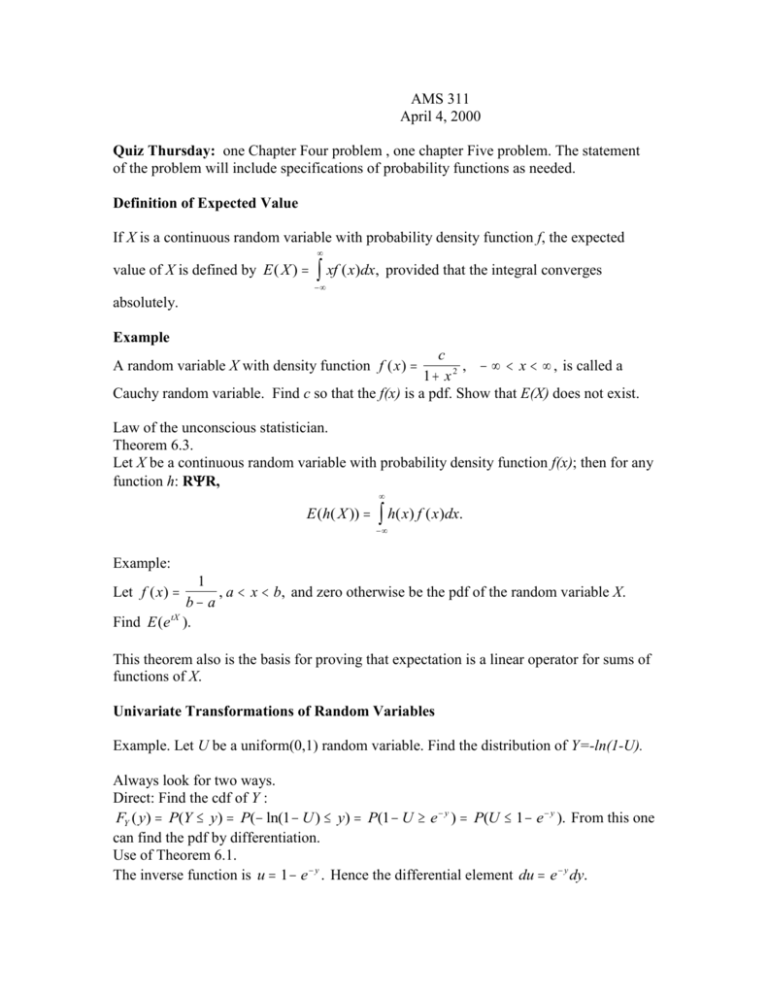
AMS 311
April 4, 2000
Quiz Thursday: one Chapter Four problem , one chapter Five problem. The statement
of the problem will include specifications of probability functions as needed.
Definition of Expected Value
If X is a continuous random variable with probability density function f, the expected
value of X is defined by E ( X )
xf ( x)dx, provided that the integral converges
absolutely.
Example
c
, x , is called a
1 x2
Cauchy random variable. Find c so that the f(x) is a pdf. Show that E(X) does not exist.
A random variable X with density function f ( x )
Law of the unconscious statistician.
Theorem 6.3.
Let X be a continuous random variable with probability density function f(x); then for any
function h: RR,
E (h( X ))
h( x) f ( x)dx.
Example:
1
, a x b, and zero otherwise be the pdf of the random variable X.
b a
Find E (e tX ).
Let f ( x )
This theorem also is the basis for proving that expectation is a linear operator for sums of
functions of X.
Univariate Transformations of Random Variables
Example. Let U be a uniform(0,1) random variable. Find the distribution of Y=-ln(1-U).
Always look for two ways.
Direct: Find the cdf of Y :
FY ( y) P(Y y) P( ln(1 U ) y) P(1 U e y ) P(U 1 e y ). From this one
can find the pdf by differentiation.
Use of Theorem 6.1.
The inverse function is u 1 e y . Hence the differential element du e y dy.
Theorem 6.1. (Method of Transformations)
Let X be a continuous random variable with density function fX and the set of possible
values A. For the invertible function h: AR, let Y=h(X) be a random variable with the
set of possible values B=h(A)={h(a):aA}. Suppose that the inverse of y=h(x) is the
function x=h-1(y), which is differentiable for all value of yB. Then fY, the density
function of Y, is given by
f Y ( y) f X (h 1 ( y))|(h 1 )'( y)|, y B.
In computer simulation, one applied the probability integral transformation to generate
values following a specified distribution.
Normal Distribution
Statement of pdf. The cdf is tabulated and is a basic reference for working problems.
De Moivre’s Theorem: Central limit theorem type result for approximating number of
heads in n independent tosses of a fair coin.
De Moivre-Laplace Theorem. Generalization to n independent Bernoulli trials with
probability of success p.
All probabilities are calculated through conversion to a standard normal distribution.
Basic principle of statistical tests.
Exponential Random Variables
The density function of an exponential random variable is given by f (t ) e t , t 0.
Gamma Distribution
The density function of a gamma distribution is given by f ( x) e x
Chi-squared distributions are a special case of gamma distributions.
( x ) n 1
, x 0.
(n 1)!

